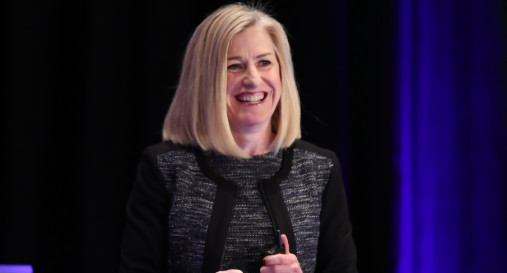PPG’s Rebecca Liebert shares four key areas for getting ahead of the competition)
A study in managing transformation
by Laura Putre for Industry Week
Pittsburgh’s riverbanks used to be covered with steel mills—and soot. In the middle of the day, the street lights had to come on light up the city. Workers had to change their shirts at lunch, they got so dirty.
Just a few decades later, the city is a very different story. The riverbanks host bike trails and wooded parks. It’s a city of great transformation
In its early days, the glass company acquired a paint company and provided the paint for the Ford Model T. In 1963, it developed the technology to electro deposit coatings on metal surfaces, allowing automotive paint to have a much longer life. Now, PPG looking to the future in areas like clearer laminated windows for airplanes – “China needs 7,700 airplanes and wants to sell every window that goes into those airplanes,” says Liebert.
Consumer expectations are growing. With autonomous vehicles on the horizon, PPG is looking into the future with different coatings for Uber and Lyft vehicles, where passengers are constantly climbing in and out of the ride. With the lines being blurred between brick-and-mortar and e-commerce, even farther into the future are architectural coatings for vehicles that might be used as traveling stores, restaurants, hotel rooms.
Liebert shared the four key areas she sees for leaders to manage through transformation:
1. Organization and Manufacturing Operating System: Get the right team on the bus and get each member in the right seat, she said, quoting Jim Collins, author of the management book Good to Great. Implement an MOS and the cadence that drives action.



